Sign up for our Book Club newsletter
Get the latest news, events and more from the Los Angeles Times Book Club, and help us get L.A. reading and talking.
You may occasionally receive promotional content from the Los Angeles Times.
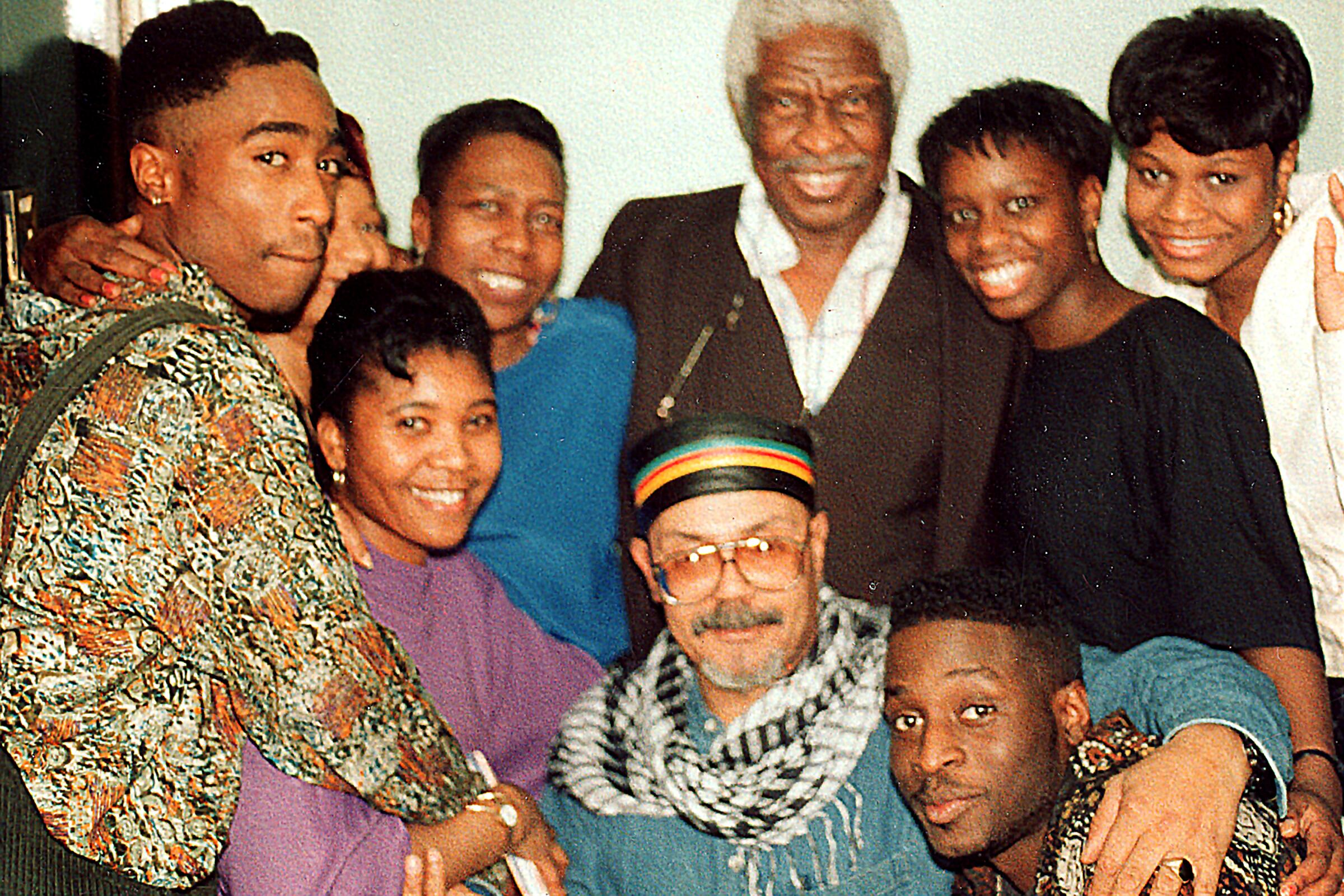
Review
An Amerikan Family: The Shakurs and the Nation They Created
By Santi Elijah Holley
Mariner: 320 pages, $33
If you buy books linked on our site, The Times may earn a commission from Bookshop.org, whose fees support independent bookstores.
Our collective presumption is that Black revolutionary movements in America had their moment in the 1960s and were effectively snuffed out by infighting, government suppression and a cultural pendulum swing that sapped the movement of support — both financial and popular. Whether vilified or mythologized, the soldiers of Black liberation are often treated as relics of the past.
That includes Tupac Shakur, an exalted figure in hip-hop history, killed in 1996 and since then venerated as the G.O.A.T., as a martyr in a regional war for rap dominance and as a revolutionary spirit devoured by the music industry.
In Santi Elijah Holley’s magnificent new book, “An Amerikan Family: The Shakurs and the Nation They Created,” we see what is so very wrong with that perspective. Holley gifts his readers with a uniquely intimate history of Black liberation that clearly demonstrates the error in petrifying these figures. Right from its introduction, in which the author describes sitting for coffee with Sekou Odinga, co-founder of the Black Panther Party’s Harlem chapter and a once-incarcerated soldier of the Black Liberation Army, Holley’s book is about a surviving lineage that can be seen, heard and felt.
A new edition of 1974’s “Angela Davis: An Autobiography” features a new introduction from Davis that reinforces its relevance today.
In three parts, the author traces the genealogy of an extended and close-knit family, based mainly in New York City, whose members each adopted or were given the surname Shakur — an Arabic word meaning “thankful.” The various members who took the Shakur name were following the examples of Malcolm X and a follower, Salahdeen Shakur, who changed his name late in his life. Not always connected by marriage or blood, they were nonetheless unified by a name that signaled a commitment to the struggle for Black liberation.
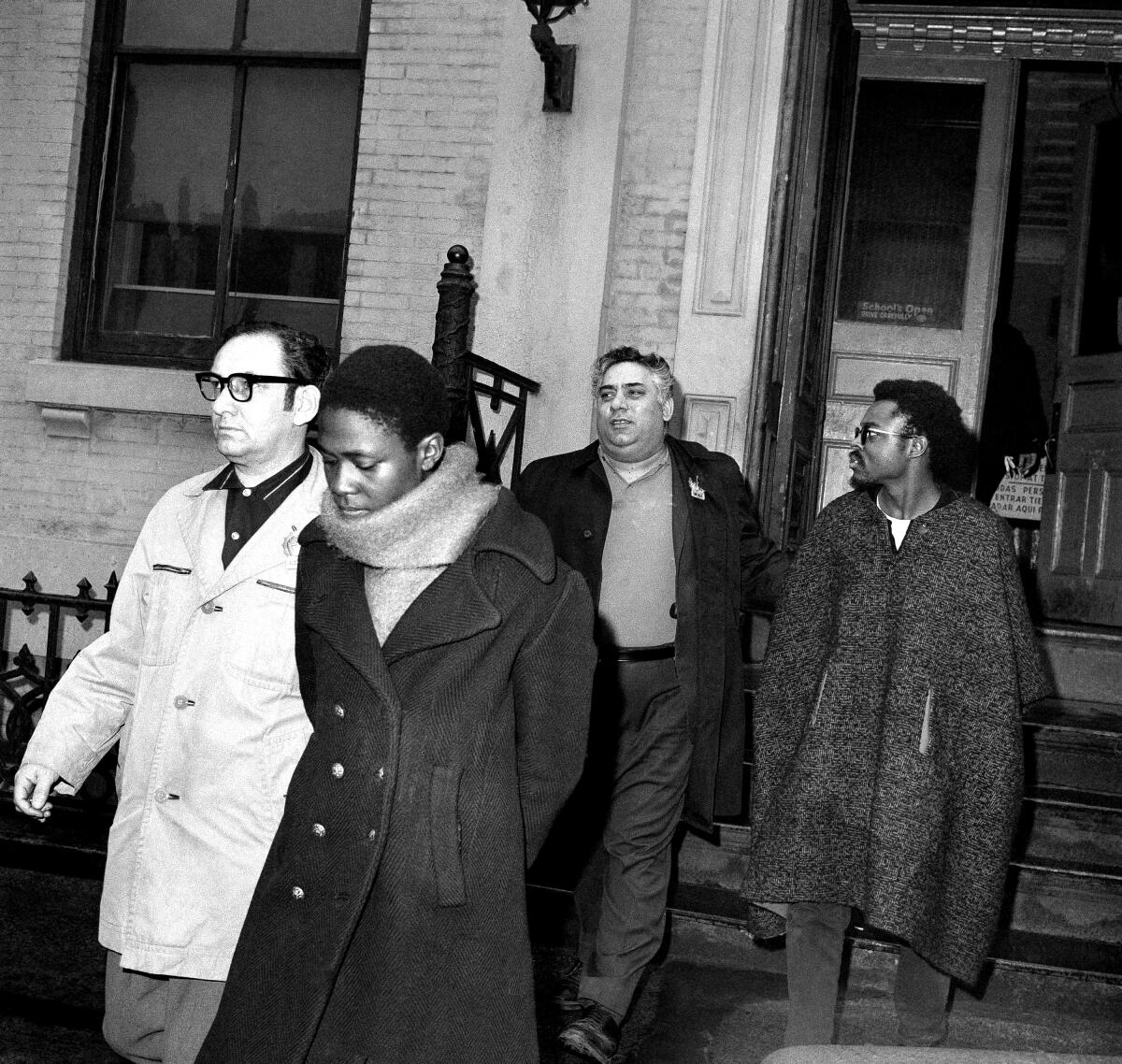
Chronologically, the story starts well over 50 years ago with Salahdeen, a Navy veteran, amateur boxer and Black nationalist who in the mid-1960s made the hajj, the sacred Muslim pilgrimage to Mecca, and returned to New York City to mentor young activists. But Holley’s narrative actually kicks off with the events leading to the trial of the Panther 21, a group of Black liberation soldiers accused of conspiracy to shoot cops and bomb buildings.
In other words, we begin when stakes are highest, at a moment in this history when the national surge in Black radicalism is mixed with real revolutionary bloodshed, media spectacle, public fear and state violence.
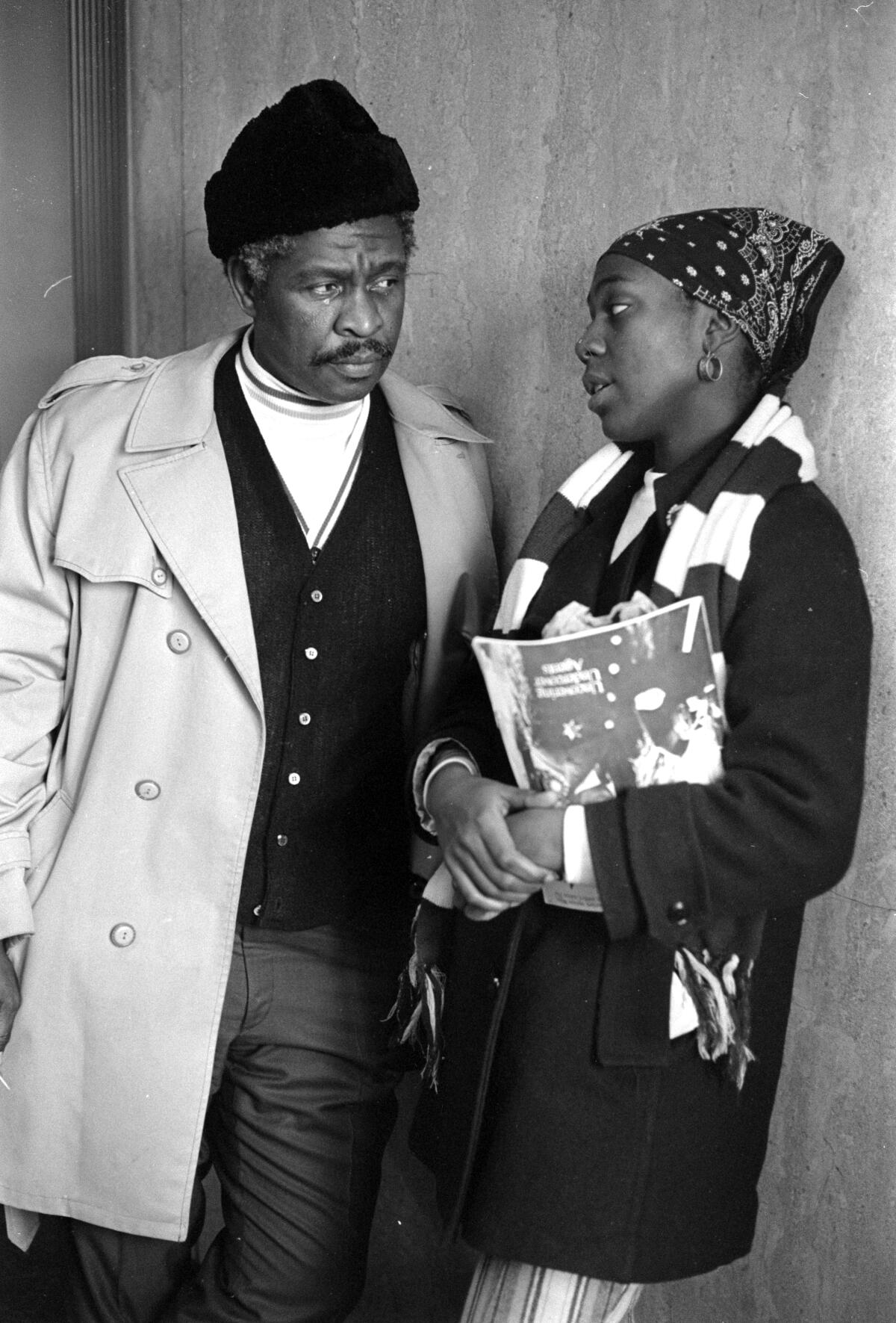
It is from here that these lives — not only of the Shakurs but their loved ones and fellow radicals — unfold before us. Among the Shakurs, the resistance journey is carried forward by Salahdeen’s sons, Lumumba and Zayd, leaders in the Harlem chapter of the Black Panther Party; Afeni, wife of Lumumba and the legal expert of the Panther 21; Mutulu, a community healthcare advocate who later fathered Afeni’s daughter Sekyiwa; writer and accused terrorist Assata, who adopted the Shakur name after defecting from the Harlem Panthers; and rapper, actor and activist Tupac, son of Afeni. Through their stories and others, Holley narrates the rise, the impact, the struggles, and the resilience of Black liberation in America.
‘Wake Me When I’m Free’ celebrates the life and art of Tupac Shakur. But Tupac’s sister is suing the trustee of Shakur’s estate over what’s inside.
Writing as a historian and storyteller, Holley never lets us lose sight of the complex tapestry of movements that marked the era. We learn, for instance, that when Afeni was detained in Greenwich Village in the Women’s House of Detention — the notorious “House of D” — the Gay Liberation Front staged protests outside in support of Afeni and her fellow Panther 21 co-defendants. While out on bail, she joined the GLF to demand queer and feminist representation in the Black Power movement.
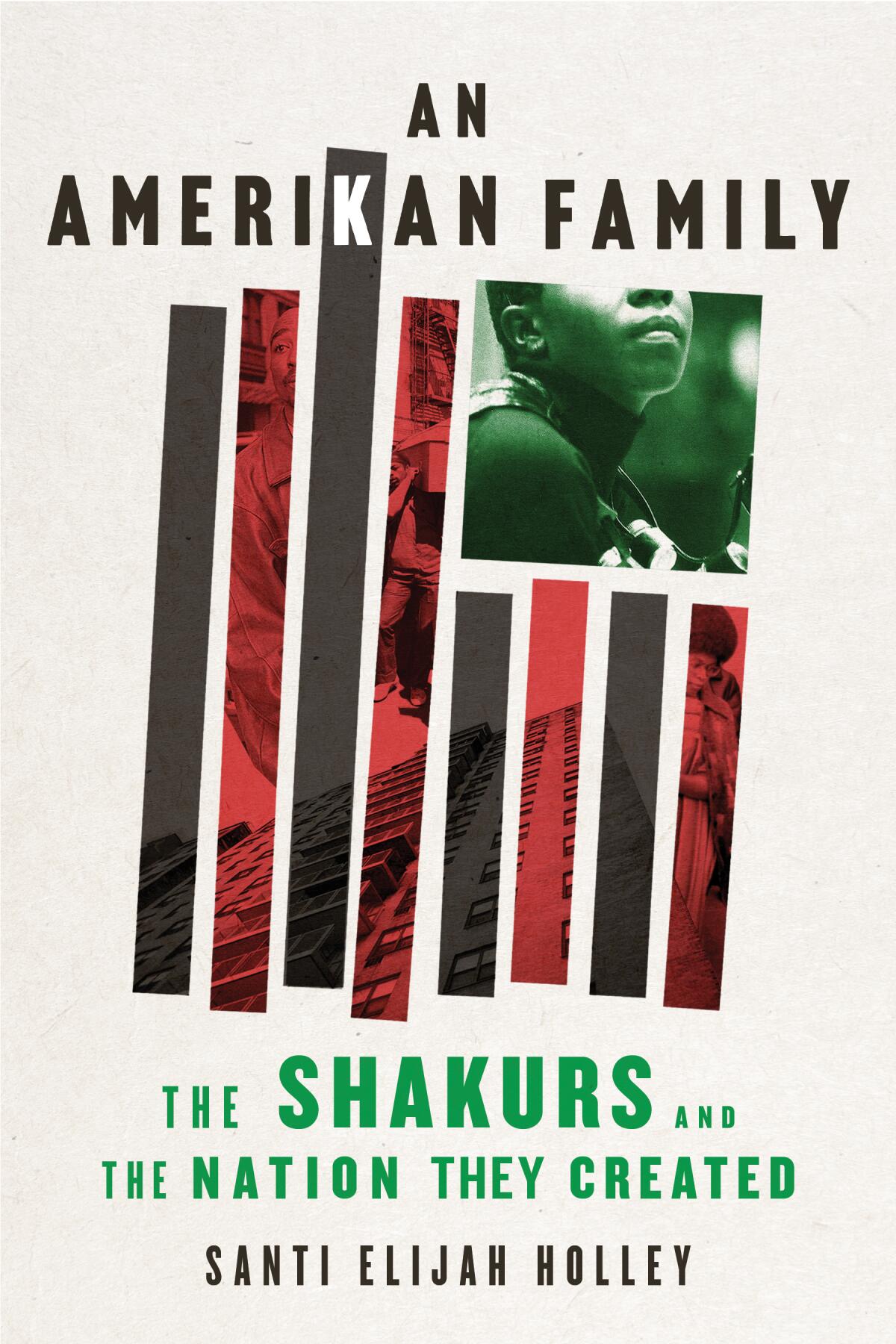
These are no simple points on a timeline; here, Holley builds for us the world in which Afeni’s relationships — with her own radicalism, her “gay sisters” and her protectors and friends, including Carol Jean Crooks, the Black queer godmother to her son — bloom.
Holley also, without any hint of hagiography, recasts familiar tales about Tupac’s troubled career by fitting them with the experiences of his radical predecessors, including their revolutionary actions but also their paranoia, suspicions of friends and fears of failure.
One conventional trope does appear — that Tupac faced a “crossroads,” upon which he ultimately chose to become a famous entertainer, helping lift his family out of poverty, rather than join the fight for Black liberation. Yet, to Holley’s credit, he never argues that activism and entertainment are incompatible, leaving open the possibility that these paths could be aligned. Indeed, he cites Odinga, who “came to recognize Tupac’s potential to spread the message of Black empowerment, self-determination, and liberation — everything Odinga had fought and sacrificed for decades earlier — to a younger generation.”
As a new biography comes out, a look back at the history of Malcolm X histories, from ‘The Autobiography’” to Public Enemy to Manning Marable.
The greatest triumph of “An Amerikan Family” is the way Holley expertly blends archival research — including court documents, congressional transcripts, FBI records and newspaper clippings — with oral history to tell human stories that are at once exceptional and recognizable. His subjects are idealistic and fallible; they experience love, anger, trauma and regret; they make bold decisions that only sometimes prove to be the right ones; they seek acceptance, revenge, forgiveness, compromise, inner peace; they parent and teach; they make mistakes; they grieve; they survive.
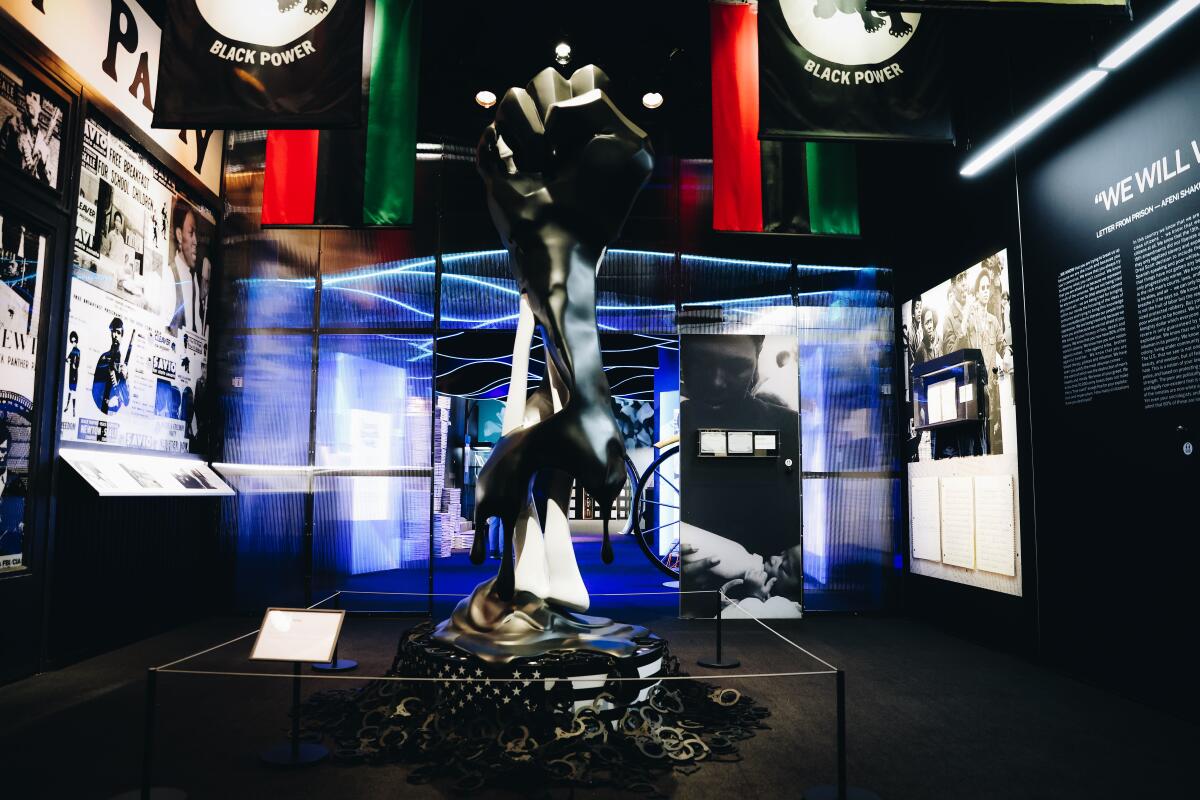
There is tremendous heroism here, but no superheroes. That’s important. As Holley writes, “[T]oday’s activists and organizers seem to be bound by a nostalgia for the past, a mythic reverence for the revolutionaries who came before … without an understanding of how much they sacrificed.” Seeing the humanity in these revolutionaries can allow the next generation of activists to see themselves as capable of resilience, and of becoming new models for making change.
Viator is an associate professor of history, a curator for the Grammy Museum and the author of “To Live and Defy in LA: How Gangsta Rap Changed America.”
Sign up for our Book Club newsletter
Get the latest news, events and more from the Los Angeles Times Book Club, and help us get L.A. reading and talking.
You may occasionally receive promotional content from the Los Angeles Times.